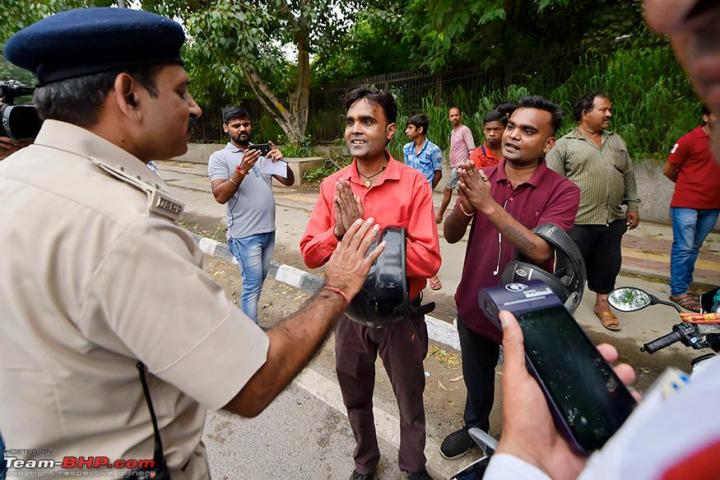News
Will the steep new traffic fines deter traffic offenders?
From September 1, 2019, the New Motor Vehicles (Amendment) Bill came into force with steep fines for traffic offences. Along with increasing the fines for existing offences, the bill added other offences like not providing way for emergency vehicles and offences by juveniles. It is reported that India signed the Brasilia declaration and has committed to reducing the number of road fatalities by half by 2022. The new increased fines could be a step taken to meet this target. The new fines are listed below:
- Driving without license - Rs. 5,000
- Driving despite disqualification - Rs. 10,000
- Overspeeding - Rs. 1,000
- Dangerous driving - Rs. 5,000
- Drunken driving - Rs. 10,000
- Racing - Rs. 5,000
- No seatbelt - Rs. 1,000
- Overloading two-wheeler - Rs. 2,000
- No helmet - Rs. 1,000
- Not providing way for emergency vehicles - Rs. 10,000
- Driving without insurance - Rs. 2,000
- Offences by juveniles - Rs. 25,000
However, with reports that some motorists have been fined tens of thousands of rupees, there have been mixed reactions from the public and the media regarding these fines. While some support the new fines, some are against it. Some states like Gujarat are also against the new higher fines.
On one hand, it is argued that the implementation of monetary fines act as a deterrent and helps bring down the number of violations. It is said that once the municipal corporation in Mumbai announced a fine of Rs. 10,000 for parking no-parking zones, the number of cases of illegal parking has come down drastically. With the higher fines, people will think twice about jumping a signal or riding without a helmet. Stricter implementation will also ensure that motorists follow the rules even when a traffic constable is not present. Stricter penalties are expected to ensure that people drive in a disciplined manner, which could reduce the number of road fatalities by half. Seeing other friends or family pay a hefty fine is also expected to deter motorists from violating the traffic rules. For a family which loses a loved one or which lives with a member incapacitated by an accident, their life changes forever. These high penalties could help reduce the number of accidents. Strict implementation is also required. Some motorists who violate the rules in India follow it in other countries because they know they can't get away paying a bribe.
On the other hand, some claim that such steep fines will only affect the poor, and will not deter the rich from committing violations. It is claimed that strategic placement of boards with pictures of policemen also act as a deterrent and that non-monetary fines like penalty points on the license could be more effective than monetary penalties. Some say that high fines as a punishment will not help, but we instead have to find the root cause of the problem, which is the Indian mindset and the 'chalta hai' attitude. The new fines are comparable to the fines in other countries, but developed countries have a higher per capita income than India and that the fines are not proportional to the crime. In some cases, these are traffic violations and not major crimes. Fines can be equal to more than the value of the vehicle and it may be devastating to the motorist. It is felt that the fines should have gradually been increased instead of a sudden increase as it is now. Some offences like 'dangerous driving' are not clearly defined and is left to the discretion of the traffic policemen. This could affect innocent drivers while the traffic policemen look to increase their collection. There are said to be better ways of improving road safety like automated speed management system, increased police checks, traffic management system and better infrastructure.
Its not just some motorists and media who are against the implementations of such high fines. Even some states are hesitant in implementing the new rules. Gujarat, Madhya Pradesh, Telangana, Rajasthan, Punjab, West Bengal and Delhi are said to have deferred the implementation of the act. Madhya Pradesh, Rajasthan and Punjab have said that the fines are too excessive, while Gujarat has referred the issue to the Regional Transport Office. It is reported that the Madhya Pradesh transport minister is okay with the fines for drunk driving, while the Rajasthan transport minister feels that the fines could increase corruption. The Punjab transport minister says that the fines would burden the people. In Hyderabad, the government is conducting an awareness campaign to inform the motorists of the new penalties and West Bengal has only partially implemented the act. While it is reported that Delhi has not yet implemented the new rules, the number of traffic challans issued is said to have reduced by 70%. Karnataka is also said to have reduced the traffic fines.

















